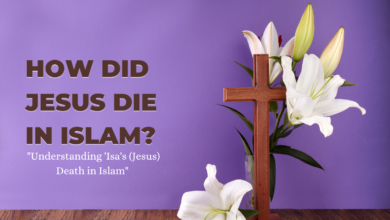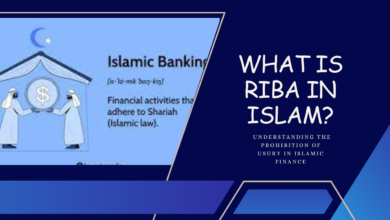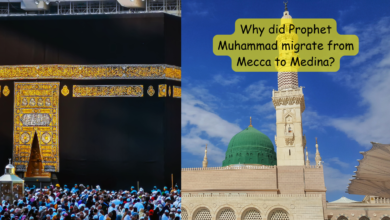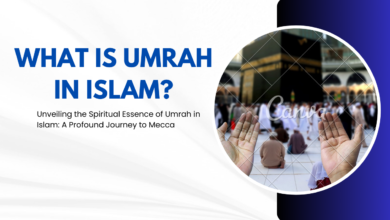what to say to convert to islam?
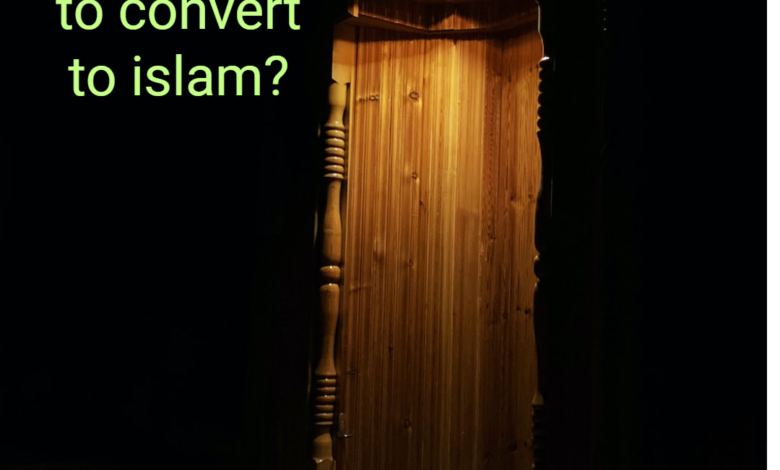
Introduction
The decision to convert to Islam is a deeply personal and spiritual journey. Converting to Islam is an acknowledgement of faith in one God, Allah, and accepting Prophet Muhammad (peace be upon him) as the final messenger. This process marks a significant turning point in a person’s life, involving self-reflection, research, and sincere contemplation. While the journey of embracing Islam may vary from person to person, there are some key elements to keep in mind, including what to say during the formal declaration of faith. This article aims to guide individuals considering conversion to Islam on what to say and the steps involved in embracing this profound faith.
Self-Reflection and Research
The journey to Islam begins with self-reflection and a genuine desire to seek spiritual truth. Take time to explore Islamic teachings, read the Quran, and study the life of Prophet Muhammad (peace be upon him). Engage in open conversations with knowledgeable Muslims, attend mosque lectures, and join study circles to deepen your understanding of Islam. Seek guidance from Allah through prayer, and be sincere in your quest for knowledge.
Understanding the Pillars of Islam
As you delve deeper into Islamic teachings, familiarize yourself with the Five Pillars of Islam. These pillars represent the core practices that form the foundation of a Muslim’s faith and include:
Shahada (Declaration of Faith): The first and most crucial pillar, it is the formal declaration of faith. We will discuss this in detail later in the article.
Salah (Prayer): Muslims are obligated to perform five daily prayers, connecting with Allah and seeking guidance and blessings throughout the day.
Zakat (Charity): Muslims are required to give a portion of their wealth to those in need as an act of purifying their wealth and showing compassion.
Sawm (Fasting): During the month of Ramadan, Muslims fast from sunrise to sunset, cultivating self-discipline and empathy for those less fortunate.
Hajj (Pilgrimage): If financially and physically able, Muslims perform the pilgrimage to the holy city of Mecca at least once in their lifetime.
Seeking Support and Community
Building connections with the Muslim community is essential as you consider converting to Islam. Engage with local mosques, Islamic centers, and organizations to find supportive individuals who can offer guidance and a sense of belonging. Sharing experiences with fellow Muslims can help strengthen your faith and provide a supportive network throughout your journey.
Making the Declaration of Faith (Shahada)
The formal declaration of faith, known as the Shahada, is the pivotal moment in converting to Islam. It is a concise Arabic phrase that translates to: “Ashhadu an la ilaha illallah, wa ashhadu anna Muhammadan rasulullah,” meaning “I bear witness that there is no god but Allah, and I bear witness that Muhammad is the messenger of Allah.”
When you are ready to make the Shahada, it is recommended to do so in the presence of witnesses, preferably in a mosque or with knowledgeable Muslims. Before making the declaration, be sure that you fully understand the meaning and implications of the Shahada.
Embracing the Journey
Converting to Islam is not just about reciting a phrase; it is a lifelong journey of learning, growing, and seeking closeness to Allah. Embrace this new phase with an open heart, ready to learn and practice the teachings of Islam. Seek to improve your character, engage in good deeds, and be patient with yourself as you adapt to a new way of life.
Conclusion
Converting to Islam is a profound decision that should be made with sincerity, knowledge, and understanding. The journey towards embracing Islam involves self-reflection, research, and seeking support from the Muslim community. The formal declaration of faith, the Shahada, is a pivotal moment that symbolizes your acceptance of Islam. Remember that the path to conversion is a continuous journey of learning, growing, and deepening your relationship with Allah. May your journey towards Islam be filled with blessings, guidance, and inner peace.
What is the declaration of faith in Islam?
The declaration of faith in Islam is known as the “Shahada.” It is the central creedal statement that every person must make to become a Muslim. The Shahada is: “Ashhadu alla ilaha illallah, wa ashhadu anna Muhammadur Rasulullah” (أشهد أن لا إله إلا الله وأشهد أن محمدًا رسول الله), which means “I bear witness that there is no god but Allah, and I bear witness that Muhammad is the messenger of Allah.”
What does the Shahada signify?
By reciting the Shahada, a person acknowledges the oneness of Allah as the only deity worthy of worship and accepts Prophet Muhammad as the final messenger of God. It marks the acceptance of the Islamic faith and initiates one’s journey as a Muslim.
Is there a specific time or place to say the Shahada?
The Shahada can be recited at any time and in any place, as long as the person is sincere in their belief and intention to become a Muslim. It is often done in the presence of witnesses, such as in a mosque or with other Muslims, but this is not mandatory.
Do I need to know Arabic to convert to Islam and recite the Shahada?
No, you do not need to know Arabic to convert to Islam or recite the Shahada. While it is preferred to learn the Shahada in Arabic and understand its meaning, it is acceptable to say it in your native language if you are not familiar with Arabic.
Can I convert to Islam on my own, or do I need someone to guide me?
You can convert to Islam on your own without the need for someone else to guide you, but it is often helpful to have support and guidance from knowledgeable Muslims during your journey.
What do I do after saying the Shahada?
After declaring the Shahada, you officially become a Muslim. It is recommended to seek knowledge about Islam, its beliefs, practices, and ethics. You can start by learning about the basic pillars of Islam, such as prayer, fasting, charity, and pilgrimage.
